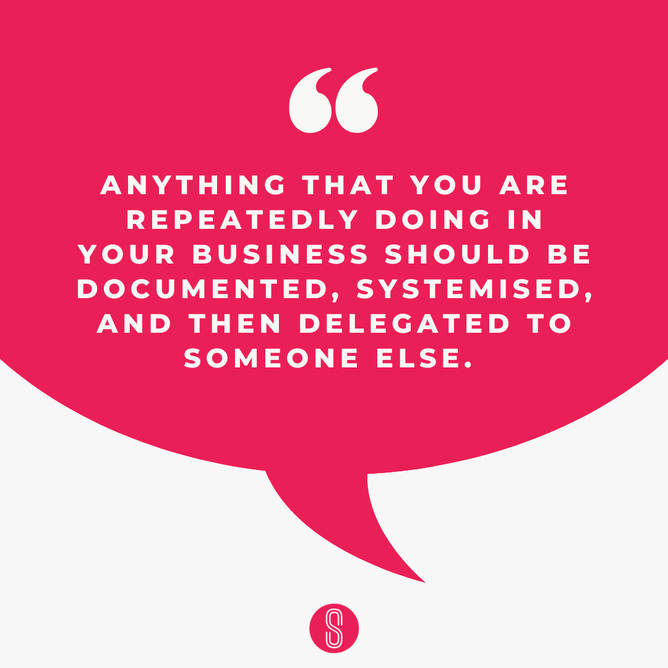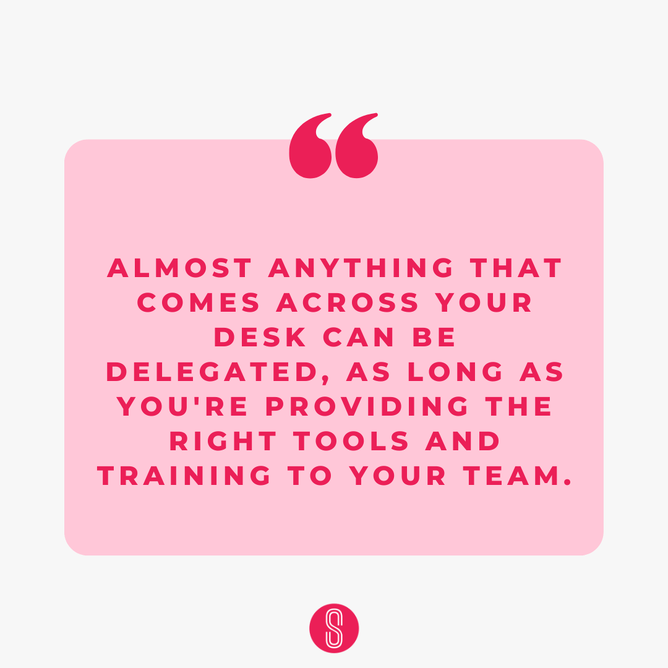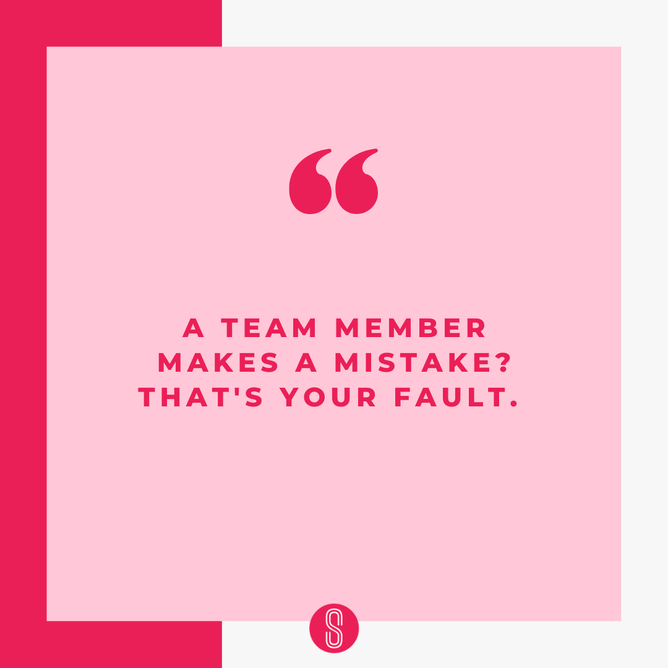On this episode of Get Savvy, we’re here to give you practical advice on getting your business to the point that point that it runs without you, while being successful and profitable.
It’s important to keep in mind that this isn’t something that will happen overnight.
But there are things that you can start doing today that will propel you towards that goal faster, and that’s what we’ll be covering today in detail.
So, ask yourself the question, how can you get your business to the point that other people are running it? Here are our top tips:
Systemise the entire business.
It might sound boring, but it works. This is the main key to building a business that runs without you, because without having everything systemised, team members will end up making things up.
There’ll be so many questions for you as the business owner and you’ll still be in there having to work in the business, dealing with the problems and mistakes that crop up.
Anything that you are repeatedly doing in your business should be documented, systemised, and then delegated to someone else.
What does this look like in practice?
Here at Strictly Savvy every aspect of our business from the time a client makes contact with us is systemised and automated where possible. For example:
- When a client downloads a lead magnet or subscribes to a newsletter on our website, they are automatically bought into our CRM, Hubspot, where they’re added to a pipeline that sends automated messages from us, checking in, saying hello, and starting to get them curious about our services.
- This also flags that user to our Client Success Manager to interact with that lead, especially if they’re enquiring about prices.
Once the client books a sales call, that’s all managed through Hubspot as well. Everything from telephone conversations, emails, where in the sales pipeline they are – and all of this is templated. Our Client Success Manager is not having to make things up every time there’s a new enquiry. - Once the client has signed up and we’ve onboarded them, we bring them into our project management tool called Teamwork.
In Teamwork we have close to 100 templated task lists that we use for different processes, one being our new client task list. This automatically sets up and assigns all the tasks associated with that new client, from the account set up, to day-to-day tasks to be completed by the Head VA, through to account management tasks.
All of these are automatically generated and assigned to the right team member. It’s a click of about two buttons rather than manually setting up 150 tasks for onboarding that client.
Having these processes streamlined not only ensures a good experience for the client, but allows team members to feel really confident in the role they’re playing. They have the answers they need without having to make anything up.
Great tools are also really important to getting this right. There are so many incredible tools out there purpose built for specific systems inside your business. Another tool that we love is Harvest.
Harvest is our time tracking tool, and we have every single client set up in Harvest which allows our team to track every minute of their day to the different clients that they’re working for. This means we can be transparent to those clients about what has been done and how long it’s taken.
It also allows us to see how billable each team member is, meaning we have a clear idea of how full they actually are, and if they need more clients or are nearing capacity. This helps with recruitment, as we know exactly when additional support is needed.
So, have you got your whole process documented from the moment that a lead comes across your business online all the way through to delivering the service and doing the account management? Is that system streamlined, gaps plugged, templates created, task lists set up and tools implemented?
Put your ego aside – you aren’t the best at ALL the things.
Other people can do the things that you do, and they can also do a way better job. As a business owner, you can easily become the bottleneck in your business if you hang on to too many responsibilities and tasks.
Every time something comes across your desk, you need to think ‘how can I not be doing this?’
Get past the thinking of ‘it’s just easier if I do it myself’ and put in the time to get someone else up to speed. Train them, give them the tools they need, and give them the time that they need.
This does take time, but you need to be actively thinking every day about how you can not be doing the things that are on your plate.
The key tasks that you can start delegating early on? Accounts, and the admin that goes along with them. Things like following up your debtors, sending out invoices, managing your bills and receipts, and reconciling bank accounts.
You’ll have to be available to answer a lot of questions at the start. The accounts person is going to take time to understand how the business works and what’s involved, what the spending is, who the clients are, how invoicing works, etc.
Once you’re comfortable with someone else managing your accounts, move through into the day-to-day admin and running of the business.
Almost anything that comes across your desk can be delegated, as long as you’re providing the right tools and training to your team.
Empower your team
Seeing the potential in your team and helping develop their skills is important.
Give your team the opportunity to grow in the business, instead of trying to keep them in their box. Let go of the thought of ‘I don’t want everyone else to be better than me’ and embrace it.
The best thing you could possibly do is hire people that are better than you (or have the potential to be better than you). It’s freeing when your team and your systems allow you to step back from the business.
Every single problem in your business is because of you
Our last tip can be a hard one to fathom, but it’s true. You have caused all of the problems in your business. A team member makes a mistake? That’s your fault.
Did you train them properly?
Do they have the processes, the templates?
Did you hire the right person?
Have you empowered them?
Have you given them support?
Being open to confront these things and open to the change that needs to come from them is something that not a lot of business owners will do. If you want your business to grow it’s a truly important skill to master.
Ultimately, if you try and keep holding on to the control of everything in your business, you’re going to wind up burnt out and overwhelmed, and your business is not going to grow.
Your team won’t be rallying behind you to support and grow the business with you, and that’s not a good place to be.
Embrace the power of systemisation, delegation, empowering your team and treating faults along the way as signs of where you need to improve.
Did you enjoy this episode? Be sure to rate, review and subscribe to the Get Savvy podcast so you never miss an episode!
The Get Savvy Podcast on Spotify
The Get Savvy Podcast on Apple Podcasts






